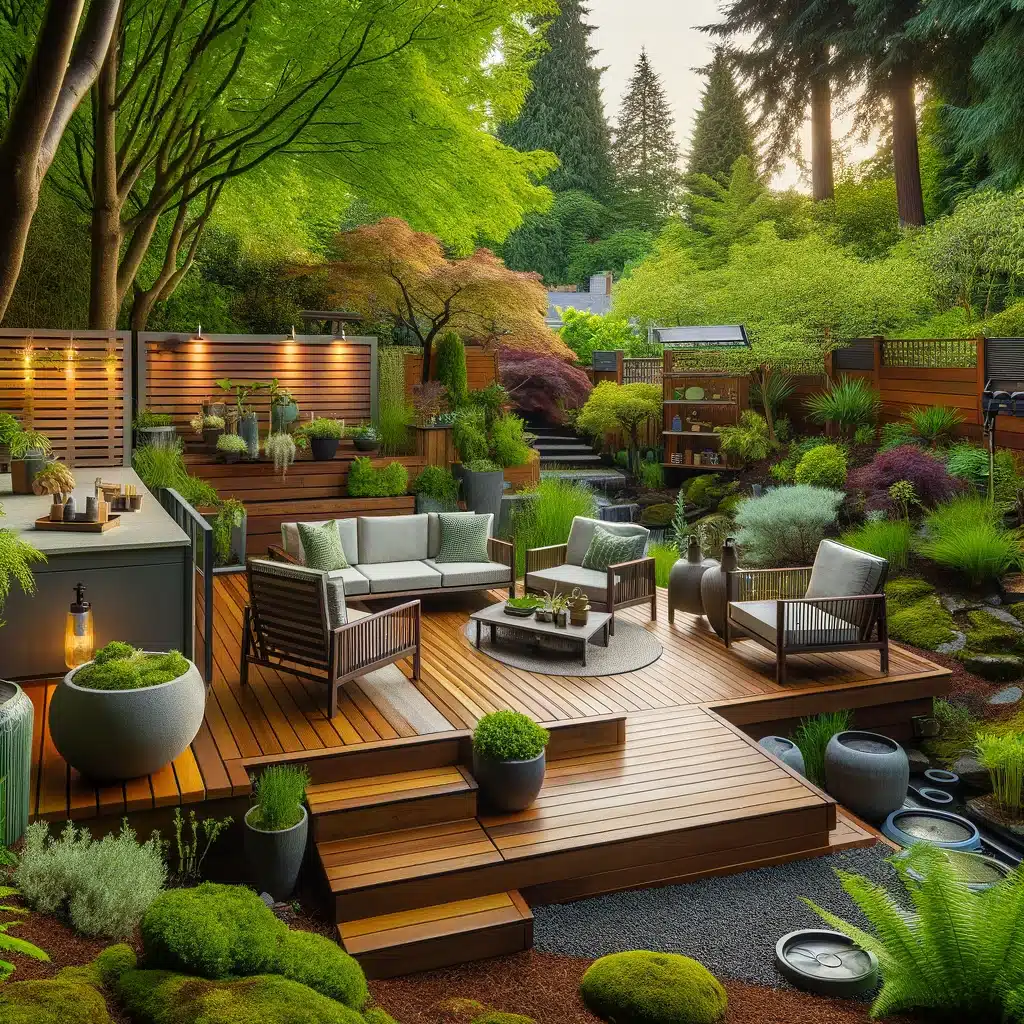In the lush, evergreen city of Seattle, homeowners are increasingly looking towards eco-friendly solutions for home improvements, especially when it comes to outdoor living spaces like decks. The shift towards sustainability is not just a trend; it’s a commitment to preserving the natural beauty and resources of the Pacific Northwest for generations to come. Eco-friendly deck remodeling is a significant part of this movement, allowing homeowners to enjoy their outdoor spaces without compromising on environmental values.
Why Go Green with Your Deck Remodel?
Remodeling a deck with sustainability in mind reduces the environmental impact of construction projects. It conserves natural resources, minimizes waste, and often results in a more durable and low-maintenance outdoor space. Furthermore, eco-friendly choices can blend seamlessly with Seattle’s climate, ensuring your deck withstands the region’s rainy weather while retaining its beauty and integrity over time.
Choosing the Right Materials
One of the most crucial decisions in an eco-friendly deck remodel is selecting the right materials that are both sustainable and suitable for Seattle’s unique climate. Here are a few top choices:
Recycled Composite Decking
Recycled composite decking is made from a blend of recycled plastics and wood fibers, making it an excellent eco-friendly choice. It’s designed to resist rot, mold, and insects, which is particularly beneficial in Seattle’s damp climate. Composite decking requires minimal maintenance, and its durability means a longer lifespan, reducing the need for replacement and further resource consumption.
Local Wood
Opting for local wood not only supports the local economy but also significantly reduces transportation emissions. Woods like Western Red Cedar and Alaskan Yellow Cedar are not only locally sourced but are also naturally resistant to moisture and decay, making them ideal for Seattle’s environment. When choosing wood, look for certifications like the Forest Stewardship Council (FSC) to ensure it was harvested sustainably.
Bamboo Decking
Bamboo is a fast-growing, renewable resource that offers a modern look and excellent durability. It’s a great sustainable alternative for decking material, especially when sourced from responsible suppliers. Bamboo is also naturally resistant to moisture and insects, making it suitable for Seattle’s climate.
Tips for a More Sustainable Deck Remodel
Beyond choosing the right materials, there are several ways to ensure your deck remodel is as eco-friendly as possible:
- Recycle and Reuse: Before dismantling your old deck, consider which materials can be recycled or repurposed. Reusing materials not only reduces waste but can also add unique, eco-conscious elements to your new deck.
- Energy-Efficient Lighting: Incorporate LED or solar-powered lighting into your deck design to reduce energy consumption. Solar-powered lights, in particular, can offer significant savings over time and minimize your carbon footprint.
- Water Conservation: Install a rainwater collection system to gather rainwater from your deck’s surface. This water can be used to irrigate your garden, further enhancing your home’s sustainability.
- Eco-Friendly Finishes: Choose finishes and sealants that are low in volatile organic compounds (VOCs) to reduce air pollution and improve the quality of your outdoor living space.
By embracing eco-friendly practices in your deck remodel, you’re not only creating a beautiful and functional outdoor space but also contributing to a healthier planet. In Seattle, where the natural environment is a treasured part of the city’s identity, making sustainable choices allows us to enjoy our outdoor spaces with a clear conscience, knowing we’re doing our part to protect our beautiful Pacific Northwest.



